Error message
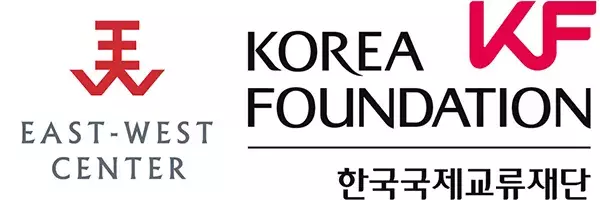
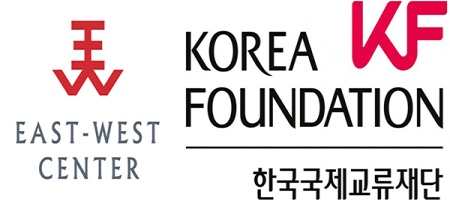
The East-West Center in Washington and the Korea Foundation invite you to the
United States-Republic of Korea Cooperation in Southeast Asia: Trade, Investment, and Multilateralism Webinar Series:
Exploring Trilateral Cooperation Possibilities in the Indo-Pacific:
US-South Korea-Philippines
Featuring:
Mr. Julio S. Amador III
East-West Center-Korea Foundation Visiting Scholar,
Executive Director, Philippine-American Educational Foundation, &
Interim President, Foundation for the National Interest
Dr. Jae Jeok Park
Associate Professor, Graduate School of International and Area Studies,
Hankuk University of Foreign Studies, Seoul, South Korea
Dr. Satu P. Limaye (Moderator)
Vice President, East-West Center &
Director, East-West Center in Washington
East-West Center in Washington · Exploring Trilateral Cooperation Possibilities in the Indo-Pacific: US-South Korea-Philippines
Is it possible for trilateral cooperation between the United States (US), the Republic of Korea (South Korea), and the Republic of the Philippines (the Philippines) to happen? For this to happen, the three countries must find the rationale for a trilateral approach, assess available resources that will support this approach, consider existing regional geopolitics, and identify opportunities and challenges. Principally, mature bilateral ties serve as a functional prerequisite to conceive a minimum working trilateral arrangement as a degree of harmonization is required across various economic, security, and political sectors.
Mr. Amador also wrote for the East-West Center in Washington's Asia Pacific Bulletin series.
The United States-Republic of Korea (ROK) Cooperation in Southeast Asia: Trade, Investment, and Multilateralism webinar series and online, collaborative policy research program is a collaboration between the East-West Center in Washington and the Korea Foundation, which generously sponsors the program. Under this program, three experts, one each from South Korea, Southeast Asia, and the United States, assess how their respective countries are collaborating to bolster US - ROK cooperation in Southeast Asia in the areas of trade, investment, and supporting multilateral efforts in the region.
SPEAKER BIOGRAPHIES
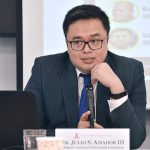
Julio S. Amador III is Executive Director of the Philippine-American Educational Foundation and Interim President of the Foundation for the National Interest, a new Philippine think-tank that focuses on strategic and security issues. He is also the founder of the Philippine Strategic Forum, a website dedicated to strategic and international issues from a Philippine perspective. Mr. Amador was a civil servant in the Philippine Government for more than a decade and worked on foreign affairs and national security issues. Mr. Amador’s most recent publication is the co-authored monograph “Reviewing Philippine-US Bilateral Defense Relations: The Legal, Military, and Diplomacy Perspectives”. He is an active participant in Track 1.5 and Track 2 diplomatic processes on regional security issues. Mr. Amador continues to be deeply involved in designing executive education programs on foreign affairs and national security for defense, military, and private training and education institutions and serves as resource person on these issues.
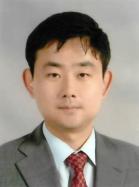
Jae Jeok Park, PhD, is Associate Professor at the Graduate School of International and Area Studies, Hankuk University of Foreign Studies in Seoul. Previously, he worked as a visiting professor at Institute of Foreign Affairs and National Security(IFANS) in 2010 and a research fellow at Korea Institute for National Unification(KINU) between 2010 and 2014. His research interests include alliance politics, US security policy in Indo-Pacific, the US-ROK alliance, and the US-Australia alliance. He received his B.A and M.I.S. from Yonsei University, M.A. and M.S. from Northwestern University in the US, and PhD from Australian National University (December 2009). While studying in the US, he was supported by the Fulbright Scholarship. He has published articles in numerous academic journals, including Pacific Review, Asian Survey, Australian Journal of International Affairs, International Relations of Asia-Pacific, Asian Security, Asian Studies Review, Asian Politics and Policy, International Area Studies Review, Korean Journal of Defense Analysis, and Journal of Contemporary China. He has also received a number of research grants, including ones commissioned by South Korea’s Ministry of Foreign Affairs and Ministry of Education. He served as a Secretary General for the CSCAP(Council on Security Cooperation in the Asia-Pacific)-Korea between 2015 and 2019.
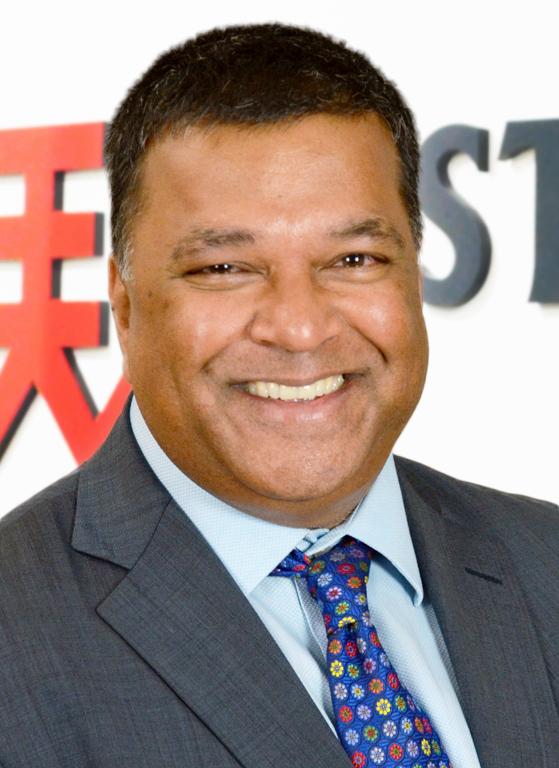
Satu P. Limaye, PhD, is Vice President of the East-West Center and the Director of the East-West Center in Washington where he created and now directs the Asia Matters for America initiative and is the founding editor of the Asia Pacific Bulletin. He is also a Senior Advisor at CNA Corp (Center for Naval Analyses) and Senior Fellow on Asia History and Policy at the Foreign Policy Institute at Paul H. Nitze School of International Studies (SAIS). He is magna cum laude and Phi Beta Kappa graduate of Georgetown University and received his doctorate from Oxford University (Magdalen College) where he was a George C. Marshall Scholar. Recent publications include: “America’s ‘Pacific Principle’ in an Indivisible Pacific Islands Region,” (Asia Pacific Bulletin); “Despite Stumbles, America’s Engagement with Southeast Runs Deep,” (Global Asia); Raging Waters: China, India, Bangladesh, and Brahmaputra Water Politics (Marine Corps University Press); and Russia’s Peripheral Relevance to US-Indo Pacific Relations (Center for the National Interest).

The East-West Center in Washington and the Korea Foundation invite you to the
United States-Republic of Korea Cooperation in Southeast Asia: Trade, Investment, and Multilateralism Webinar Series:
Exploring Trilateral Cooperation Possibilities in the Indo-Pacific:
US-South Korea-Philippines
Featuring:
Mr. Julio S. Amador III
East-West Center-Korea Foundation Visiting Scholar,
Executive Director, Philippine-American Educational Foundation, &
Interim President, Foundation for the National Interest
Dr. Jae Jeok Park
Associate Professor, Graduate School of International and Area Studies,
Hankuk University of Foreign Studies, Seoul, South Korea
Dr. Satu P. Limaye (Moderator)
Vice President, East-West Center &
Director, East-West Center in Washington
East-West Center in Washington · Exploring Trilateral Cooperation Possibilities in the Indo-Pacific: US-South Korea-Philippines
Is it possible for trilateral cooperation between the United States (US), the Republic of Korea (South Korea), and the Republic of the Philippines (the Philippines) to happen? For this to happen, the three countries must find the rationale for a trilateral approach, assess available resources that will support this approach, consider existing regional geopolitics, and identify opportunities and challenges. Principally, mature bilateral ties serve as a functional prerequisite to conceive a minimum working trilateral arrangement as a degree of harmonization is required across various economic, security, and political sectors.
Mr. Amador also wrote for the East-West Center in Washington's Asia Pacific Bulletin series.
The United States-Republic of Korea (ROK) Cooperation in Southeast Asia: Trade, Investment, and Multilateralism webinar series and online, collaborative policy research program is a collaboration between the East-West Center in Washington and the Korea Foundation, which generously sponsors the program. Under this program, three experts, one each from South Korea, Southeast Asia, and the United States, assess how their respective countries are collaborating to bolster US - ROK cooperation in Southeast Asia in the areas of trade, investment, and supporting multilateral efforts in the region.
SPEAKER BIOGRAPHIES

Julio S. Amador III is Executive Director of the Philippine-American Educational Foundation and Interim President of the Foundation for the National Interest, a new Philippine think-tank that focuses on strategic and security issues. He is also the founder of the Philippine Strategic Forum, a website dedicated to strategic and international issues from a Philippine perspective. Mr. Amador was a civil servant in the Philippine Government for more than a decade and worked on foreign affairs and national security issues. Mr. Amador’s most recent publication is the co-authored monograph “Reviewing Philippine-US Bilateral Defense Relations: The Legal, Military, and Diplomacy Perspectives”. He is an active participant in Track 1.5 and Track 2 diplomatic processes on regional security issues. Mr. Amador continues to be deeply involved in designing executive education programs on foreign affairs and national security for defense, military, and private training and education institutions and serves as resource person on these issues.

Jae Jeok Park, PhD, is Associate Professor at the Graduate School of International and Area Studies, Hankuk University of Foreign Studies in Seoul. Previously, he worked as a visiting professor at Institute of Foreign Affairs and National Security(IFANS) in 2010 and a research fellow at Korea Institute for National Unification(KINU) between 2010 and 2014. His research interests include alliance politics, US security policy in Indo-Pacific, the US-ROK alliance, and the US-Australia alliance. He received his B.A and M.I.S. from Yonsei University, M.A. and M.S. from Northwestern University in the US, and PhD from Australian National University (December 2009). While studying in the US, he was supported by the Fulbright Scholarship. He has published articles in numerous academic journals, including Pacific Review, Asian Survey, Australian Journal of International Affairs, International Relations of Asia-Pacific, Asian Security, Asian Studies Review, Asian Politics and Policy, International Area Studies Review, Korean Journal of Defense Analysis, and Journal of Contemporary China. He has also received a number of research grants, including ones commissioned by South Korea’s Ministry of Foreign Affairs and Ministry of Education. He served as a Secretary General for the CSCAP(Council on Security Cooperation in the Asia-Pacific)-Korea between 2015 and 2019.

Satu P. Limaye, PhD, is Vice President of the East-West Center and the Director of the East-West Center in Washington where he created and now directs the Asia Matters for America initiative and is the founding editor of the Asia Pacific Bulletin. He is also a Senior Advisor at CNA Corp (Center for Naval Analyses) and Senior Fellow on Asia History and Policy at the Foreign Policy Institute at Paul H. Nitze School of International Studies (SAIS). He is magna cum laude and Phi Beta Kappa graduate of Georgetown University and received his doctorate from Oxford University (Magdalen College) where he was a George C. Marshall Scholar. Recent publications include: “America’s ‘Pacific Principle’ in an Indivisible Pacific Islands Region,” (Asia Pacific Bulletin); “Despite Stumbles, America’s Engagement with Southeast Runs Deep,” (Global Asia); Raging Waters: China, India, Bangladesh, and Brahmaputra Water Politics (Marine Corps University Press); and Russia’s Peripheral Relevance to US-Indo Pacific Relations (Center for the National Interest).








